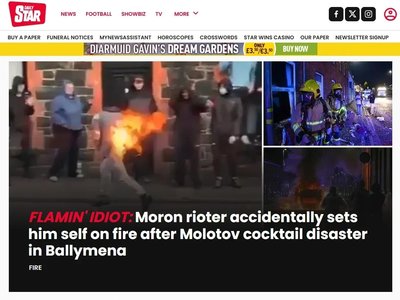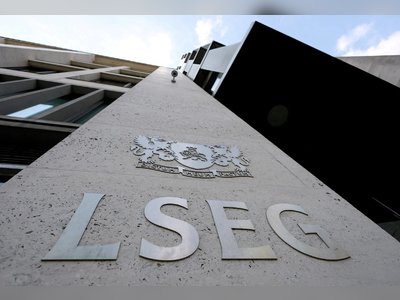Kurdish-led Crime Network Operates UK Mini-Marts to Exploit Migrants and Sell Illicit Goods
Investigation finds more than 100 shops used by asylum-seekers working illegally under ghost-directors and trading in illegal vapes and cigarettes
An undercover investigation has uncovered a Kurdish crime network operating behind more than 100 mini-marts, barbershops and car-washes across the UK. Asylum-seekers were told how easily they could take over a shop and profit, trading illegal vapes and cigarettes while working illegally.
The network relies on so-called “ghost directors” whose names appear on official records but who play no active role in managing the businesses.
One such director told undercover reporters he managed 40 to 50 shops for a monthly fee of up to £300 per shop, while another offered to build hidden compartments and stash cars to evade authorities.
Reports show that asylum-seekers were being charged for the privilege of running a shop they did not legally own, yet still expected to pay and take on the risk of both enforcement and exploitation.
One revealed that weekly profits from illicit tobacco might reach £3,000.
Shop sales documents showed frequent dissolutions and re-registrations of companies, raising red flags consistent with large-scale money-laundering and organised crime.
Authorities confirmed the scale of the issue: the government’s most recent illegal-working enforcement drive reported over 11,000 raids and 8,000 arrests in the past year, the highest on record.
The home secretary said illegal working and associated criminality create a pull-factor for illegal migration and pledged robust action.
But investigators warn that many stores remain operational despite raids – licensing and regulatory frameworks lag behind the evolving criminal model.
The network’s footprint is nationwide, spanning High Streets in Dundee, Hull, Blackpool and Exeter.
Hidden beneath modest shopfronts lies a business model that exploits vulnerable migrants, undercuts legitimate traders and finances wider organised-crime activity.
In one shop a builder offered a £6,000-priced hidden chute to conceal packets of cigarettes from sniffer dogs.
In another, the store manager freely allowed teenage customers to buy illegal vapes.
Financial-crime analysts say that the simplification of company registration and low enforcement thresholds allow such ghost-director schemes to thrive.
The businesses identified show patterns of frequent company dissolutions, multiple use of the same address for several firms and registrations by individuals already subject to disqualification.
The revenue is realised through high-volume sales of illicit goods – a model comparable in scale to hard-drugs trafficking in terms of profit, said one former regulator.
Workers in the network described 14-hour shifts for as little as £4 per hour, while being under threat of both immigration and criminal enforcement.
One told investigators he was told the job was “just under my name” and that no council tax or formal ownership was required.
The home secretary reiterated the government’s position: illegal working will not be tolerated and those found to exploit migrants or hire them unlawfully will face fines, disqualification and potential imprisonment.
Yet enforcement remains reactive, and regulators warn that without a proactive, strategic response the network may continue to extend its reach despite closure of individual shops.
The network relies on so-called “ghost directors” whose names appear on official records but who play no active role in managing the businesses.
One such director told undercover reporters he managed 40 to 50 shops for a monthly fee of up to £300 per shop, while another offered to build hidden compartments and stash cars to evade authorities.
Reports show that asylum-seekers were being charged for the privilege of running a shop they did not legally own, yet still expected to pay and take on the risk of both enforcement and exploitation.
One revealed that weekly profits from illicit tobacco might reach £3,000.
Shop sales documents showed frequent dissolutions and re-registrations of companies, raising red flags consistent with large-scale money-laundering and organised crime.
Authorities confirmed the scale of the issue: the government’s most recent illegal-working enforcement drive reported over 11,000 raids and 8,000 arrests in the past year, the highest on record.
The home secretary said illegal working and associated criminality create a pull-factor for illegal migration and pledged robust action.
But investigators warn that many stores remain operational despite raids – licensing and regulatory frameworks lag behind the evolving criminal model.
The network’s footprint is nationwide, spanning High Streets in Dundee, Hull, Blackpool and Exeter.
Hidden beneath modest shopfronts lies a business model that exploits vulnerable migrants, undercuts legitimate traders and finances wider organised-crime activity.
In one shop a builder offered a £6,000-priced hidden chute to conceal packets of cigarettes from sniffer dogs.
In another, the store manager freely allowed teenage customers to buy illegal vapes.
Financial-crime analysts say that the simplification of company registration and low enforcement thresholds allow such ghost-director schemes to thrive.
The businesses identified show patterns of frequent company dissolutions, multiple use of the same address for several firms and registrations by individuals already subject to disqualification.
The revenue is realised through high-volume sales of illicit goods – a model comparable in scale to hard-drugs trafficking in terms of profit, said one former regulator.
Workers in the network described 14-hour shifts for as little as £4 per hour, while being under threat of both immigration and criminal enforcement.
One told investigators he was told the job was “just under my name” and that no council tax or formal ownership was required.
The home secretary reiterated the government’s position: illegal working will not be tolerated and those found to exploit migrants or hire them unlawfully will face fines, disqualification and potential imprisonment.
Yet enforcement remains reactive, and regulators warn that without a proactive, strategic response the network may continue to extend its reach despite closure of individual shops.










